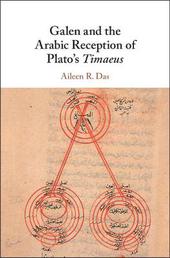
|
Galen and the Arabic Reception of Plato's Timaeus
Hardback
Main Details
| Title |
Galen and the Arabic Reception of Plato's Timaeus
|
| Authors and Contributors |
By (author) Aileen R. Das
|
| Physical Properties |
| Format:Hardback | | Pages:320 | | Dimensions(mm): Height 240,Width 160 |
|
| Category/Genre | Philosophy
Islamic and Arabic philosophy |
|---|
| ISBN/Barcode |
9781108499484
|
| Classifications | Dewey:113 |
|---|
| Audience | | Professional & Vocational | |
|---|
| Illustrations |
Worked examples or Exercises
|
|
Publishing Details |
| Publisher |
Cambridge University Press
|
| Imprint |
Cambridge University Press
|
| Publication Date |
12 November 2020 |
| Publication Country |
United Kingdom
|
Description
This first full-length study of the Arabic reception of Plato's Timaeus considers the role of Galen of Pergamum (129-c. 216 CE) in shaping medieval perceptions of the text as transgressing disciplinary norms. It argues that Galen appealed to the entangled cosmological scheme of the dialogue, where different relations connect the body, soul, and cosmos, to expand the boundaries of medicine in his pursuit for epistemic authority - the right to define and explain natural reality. Aileen Das situates Galen's work on disciplinary boundaries in the context of medicine's ancient rivalry with philosophy, whose professionals were long seen as superior knowers of the cosmos vis-a-vis doctors. Her case studies show how Galen and four of the most important Christian, Muslim, and Jewish thinkers in the Arabic Middle Ages creatively interpreted key doctrines from the Timaeus to reimagine medicine and philosophy as well as their own intellectual identities.
Author Biography
Aileen R. Das is an Assistant Professor of Classical Studies and Middle East Studies at the University of Michigan. Her work aims to illuminate the diverse, and often subversive, uses to which medieval Arabic writers put their Greco-Roman sources in realizing their own scientific ambitions. In addition to translating Arabic versions of lost or fragmentary Greek texts, she has published on various topics relating to ancient and medieval medicine and philosophy, including Islamicate receptions of Hippocrates, epitomatory literature, and views on plant life.
|